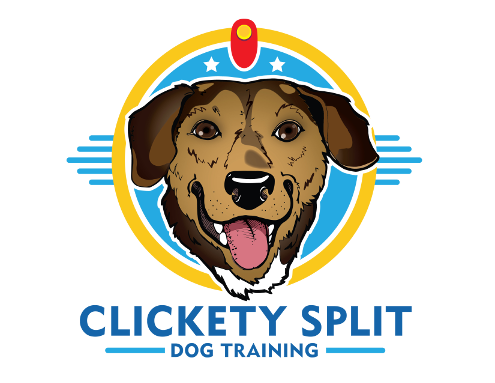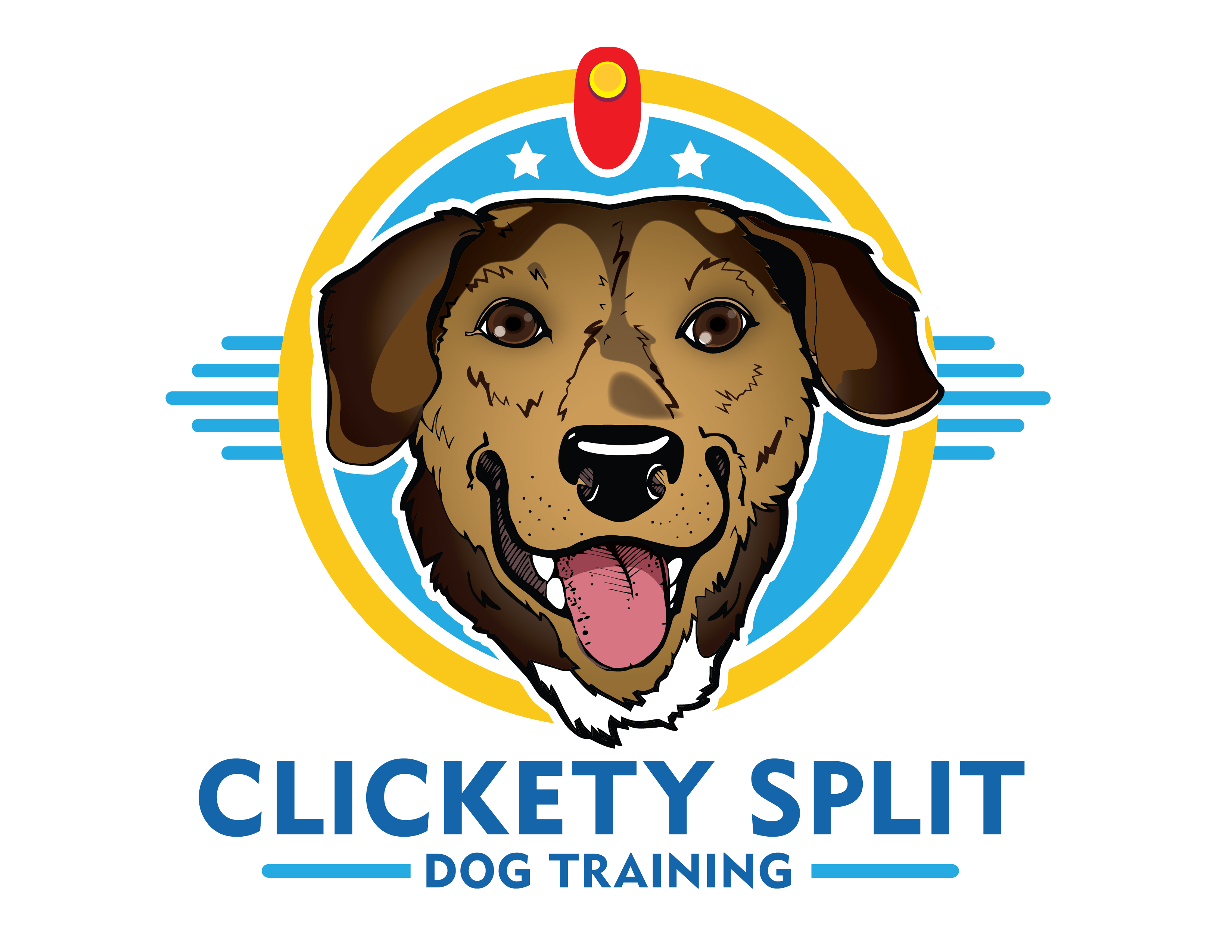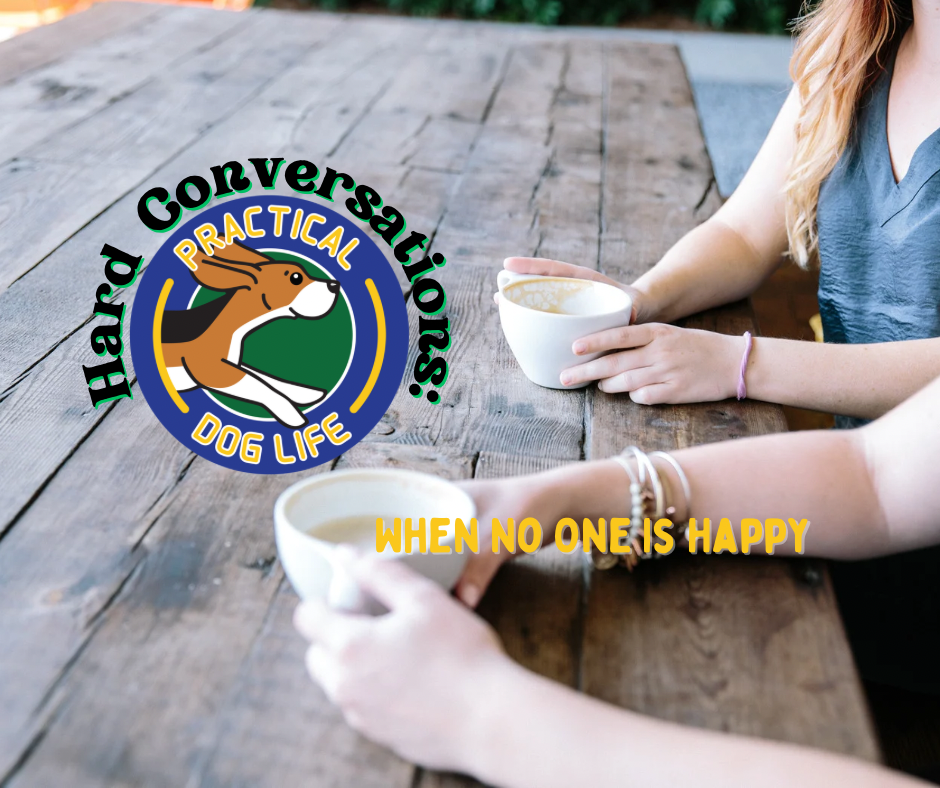The following is a post I wrote as part of our “Hard Conversations” series in our Pandemic Puppy Support Group on Facebook. I received many requests for a shareable version of this hard conversation, so I’ve updated it, added some resources, special notes for breeders/rescues and am reposting it here.
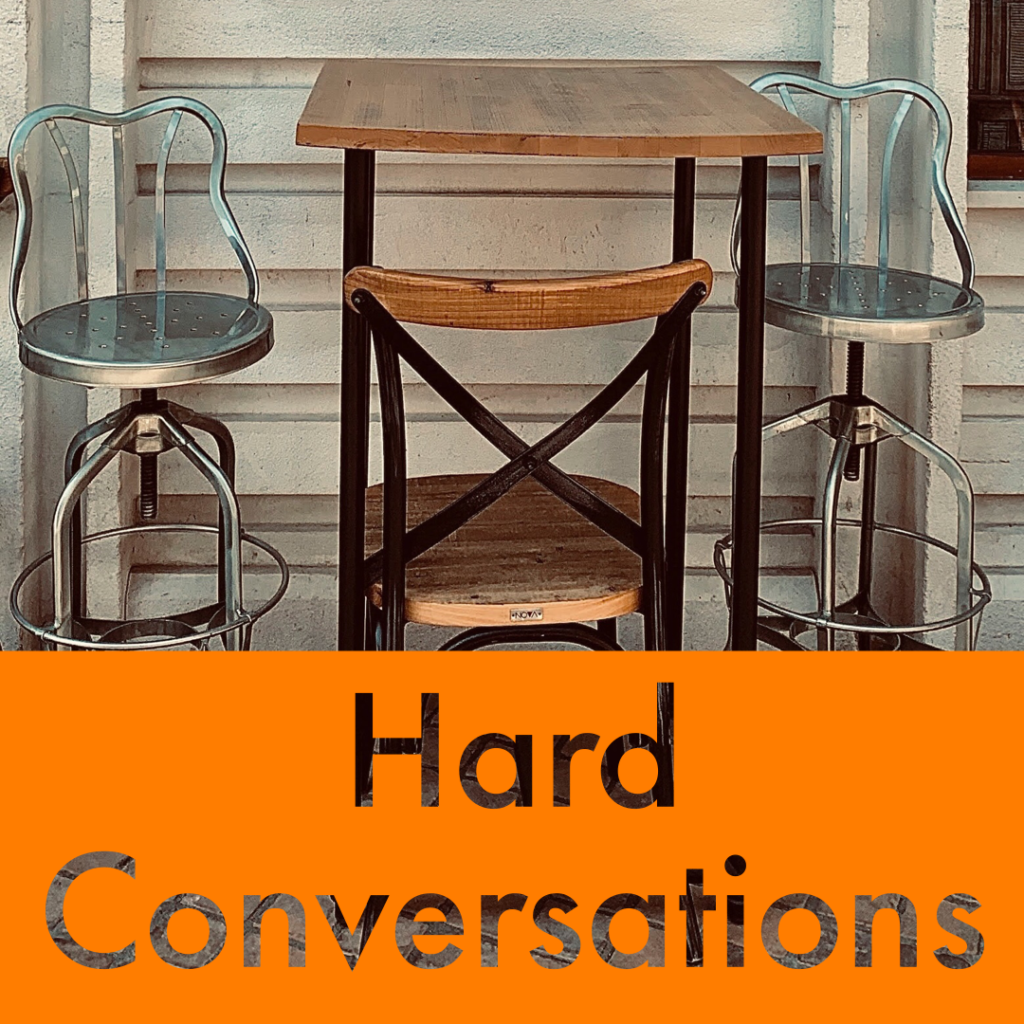
As the weeks have passed in this group there is one taboo subject that I think we need to address and smash.
What to do when the puppy has been brought home and it’s become apparent that nobody’s best interest are being served.
We have created an unfortunate taboo around the subject of what to do when the puppy is not working out in the family. This is unfortunate because every dog deserves to live in a family that appreciates, values, and enjoys the dog for who it is. Who it is now as much as who it might be in the future.
It’s unfortunate because companion animals of all types should make our lives better, more enjoyable, and happier. Not every moment of course, because we all know puppies are a LOT of work, shoes will be chewed, sleep will be lost and we know our pets will someday become unwell, and eventually leave us in great sorrow, but on balance we have pets because they make our lives better, they make us better people, and in turn we ensure they are happy, and we make them better dogs.
But it does happen, that despite everyone’s best intentions, this does not happen.
The puppy is not happier for being in this home, the puppy isn’t learning to be a better dog, it’s becoming a puppy at risk for serious behavior problems or emotional problems later.
The owner isn’t happier either, once knee deep in puppy raising the person realizes not only is this a lot of work, but the work itself is not enjoyable. The owner realizes that what they thought dog ownership would be is not what it is in reality. There is tension in the family, and human relationships are strained, someone is afraid of the dog, allergic to it, or angry at it, the dog is not helping anyone be a better person, it’s the opposite, the dog is bringing out negative traits in humans and straining relationships previously unstrained.
As humans we are capable of saying we are unhappy, that we made a mistake, and we need to fix this problem for the well-being of everyone.
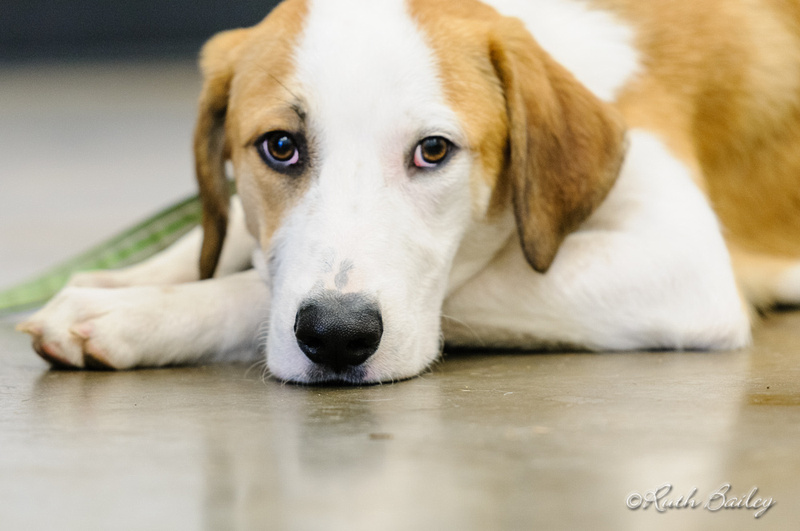
But our dogs cannot say this to us, the dog cannot say to us it know’s it’s not accepted for who it is, dogginess and all, it know’s that a person has bad feelings towards it, that it’s affection and dog language is met with fear and unhappiness. It can’t tell us it know’s it’s living a half life, never fully accepted, often resented, and the cause of distress. But don’t kid yourself, the dog knows, it senses the tension, the conflict felt by the people who both love it and resent it for being a dog. The joy hobbled by sadness that a mistake has been made.
We owe it to our puppy to face these feelings, to have these discussions in our family, to seek professional input on the problems we are having sooner than later.
Dogs deserve a home where they are fully accepted for who they are, where just being a dog and doing dog things, doesn’t cause family or personal distress.
But how to know? How to know when puppy blues are not puppy blues but dog blues, or mistake blues? How to know when it’s time to consider returning your puppy to the breeder or rescue, and what to do when that is not possible.
Checklist for Change:
1. Consult a professional:
If you know you will never consult a professional to help you with behavior challenges you are facing, or you have and discovered the work you needed to do to make things better just won’t get done because nobody has the time or inclination to do it, then it’s likely owning a dog isn’t right for you or the dog at this time. If things are really off the rails, if there are tears, anger, family conflict and resentment and yet no real interest in, or consensus for, making it better it’s time to really consider if it’s in the best interest of the puppy to remain in the home.
2. Consider the needs of humans:
If there is a family member who is afraid of the dog, or allergic to the dog, and there is little interest or ability to consult a professional (trainer and medical) to help the affected person it’s likely the dog will find itself increasingly marginalized and confined so the person can live their life in the home.
If there is a human in the home who is not enjoying the dog, who does not “like” the dog, and this is unlikely to change, It’s time to consider if the dog will be happy long term living with someone who wishes the dog was NOT in the home. None of us would want to live with someone who did not want us there, dogs don’t want to live with people who don’t want them around either.
The presence of the dog, just being a dog and doing dog things, is causing anger, tension, fights within the family. Again, nobody wants to live with people who are arguing and fighting about them, dogs sense this tension too.
There is a real risk the family or owner may loose access to housing due to the dog just being a dog and doing things dogs are likely to do (barking, digging, relieving itself in appropriate places) and cannot likely be prevented from doing these things. The risk of being homeless may mean the puppy is better off in a different home if other housing is not available.
3. Consider the best interest of the dog.
Sometimes when reality hits good intentions, good intentions loose. The fact is that dogs are dogs and they do dog things.
Dogs poop, they pee, they vomit, they roll in stuff that stinks, they bark, they dig, they shed, they smell sometimes, they need feeding, they need an interesting life, they need veterinary care, they need exercise, they need time and attention and acceptance. If you can honestly say that some aspect of “being a dog” is not acceptable or possible for your family then having a dog becomes an unkindness to the dog. Dogs deserve to live a full life, where their dogginess is celebrated and enjoyed by caregivers. If we ask ourselves if we would want to live in a home where some aspect of “who we are” was not acceptable to those who care for us we would all say “no thanks”. We all, human and dog, deserve to be loved and accepted for who we are, for dogs this means not begrudging the dog being a dog and doing dog stuff.
Prior to this I’ve not talked about behavior, but rather in innate traits of the dog, but let’s address behavior.
Behavior can be changed within the confines of the ability of the learner. We can’t teach our children to grow feathers, but we can teach them to draw feathers. We can teach our dogs to let us groom them, but we cannot teach them not to shed, we can teach puppies where to relieve themselves, but we cannot teach them not to need to.
But we can’t do either if the human isn’t willing or able to do this work. So it’s doesn’t actually matter if the dog could be trained to do some behavior, or not to do some behavior, if the human who holds the leash knows, knows deep down, that the ability or willingness to do that work is not present.
Now let me make it clear, it does NOT matter why this work won’t be done, believe me the dog doesn’t care if it “can’t” be done or “won’t” be done, the dog only knows it’s not happening. So for purposes of this discussion I don’t care why, either inability or unwillingness, the only thing that matters is that the work won’t be done.
This is a “No Judgement” zone. What is important is not who is at fault, what is important and salient, is what needs to happen to ensure the family is happy, and the dog is happy.
That might well be a hard talk, a training package purchased, actions taken, and a commitment to the dog reaffirmed.
But that might well be that after a hard talk, everyone involved decides it’s in the best interest of the dog and humans, that the dog is situated into a different home. A home where it’s needs will be fully met, and the dog can be fully happy.
This is nothing anyone can decide for you, as the dog’s caregiver you alone hold the responsibility for this animal’s safety, health, and happiness.
If you have decided the puppy or dog is going to be better off in a different home here are some things to consider.
1. If you choose a responsible source for your puppy (either breeder or rescue/shelter) you are fortunate. The breeder/rescue/shelter will undoubtedly take the puppy back and find it a suitable home. Contact the source of your puppy first. Some will even allow you to keep the puppy while they find a new home, so the puppy’s stress is lessened.
I want to drop a note in here for breeders and rescues, it is imperative that we, as the source of companion dogs, always provide open communication with our clients in a judgement free way that “makes room” for our clients to feel safe enough to tell us they are considering returning their puppy or dog to us. Contractual obligations are not enough. Our feelings on this matter do NOT matter at this point. We need to ensure for the safety and wellbeing of our puppy or dog that our clients feel safe in returning their dog to us. If they do not feel safe they are more likely to re-home the dog without telling us and that is not what any responsible breeder or rescue wants to happen.
2. If you chose an irresponsible source for your puppy (Craigslist add, “free puppy” box, an irresponsible breeder, or shelter) you will now have to do the work of finding a good home for your puppy. Start by contacting a professional trainer and your veterinarian for advice as to what local options are present. DO take the responsibility of ensuring your puppy is placed into a safe, permanent, loving home seriously because in the absence of a good rescue or breeder to help you you are literally all that stands between your puppy and a bad outcome. Take your time, network, interview people carefully, and don’t be in a hurry. Follow up with that new home every week at first, then every month, then at least once per year, so that you can ensure the puppy you have placed there is happy and well cared for. Network among friends, reach out to a trainer, a local rescue, and your veterinarian for input on how to find a safe and responsible home for your puppy.
3. Do not ruin the puppy. I can’t stress this enough, if you get desperate for someone to “fix” the puppy and send it off for In Kennel training and that trainer uses high risk and unsafe training techniques the puppy may leave training with MORE problems and MORE SERIOUS behavior problems than before it left for training. It’s very hard, and in some cases impossible, to find homes for adolescents who have been damaged by high risk training methods. It is extra tragic when people regret the puppy, can’t face that emotionally, and send it away for someone else to “fix” and then find that training actually seriously damaged the dog’s temperament and made that dog less placeable. If it sounds like a relief for you to send your puppy away for training BEFORE you do that seriously consider all of the above, and seriously research the trainer and methodology before you send that puppy off. Because nothing is more tragic than someone paying someone to ruin the dog. It’s better to rehome a puppy sooner, than to make mistakes of training that might render the dog at a high risk of future abandonment, abusive training, or behavioral euthanasia. Better to face the situation earlier, really reach out for advice from knowledgeable trainers, the breeder/rescue and do the training yourself. Don’t want to do that training, consider if a dog is right for your family at this time.
In most cases puppy blues are transitory, puppies are hard, they are not the fun we think they will be, they bite, they pee, the poop, they are loud and keep us awake. But in most cases we enjoy this, we know it’s temporary, we know we’ll get past it, and we enjoy almost everything a puppy brings into our lives. But when this is not the case, and nobody’s needs are being met, it’s time to reach out to the breeder or rescue, or your trusted trainer/veterinarian, and talk about your concerns and challenges. It’s not right that we shame people for doing what is in reality the best thing for the dog and the family, we should all want the same thing, for everyone to be happy, for everyone to have their needs met, and for everyone to be accepted.
I know this is a hard subject to discuss, it’s hard for me to write this, but as hard as it is for me, I know it’s much harder for those among us who are really struggling with knowing if they have made the right decision.
Need Guidance? Contact us to schedule a remote consultation.
